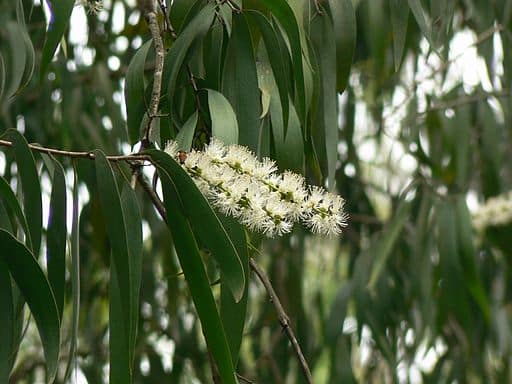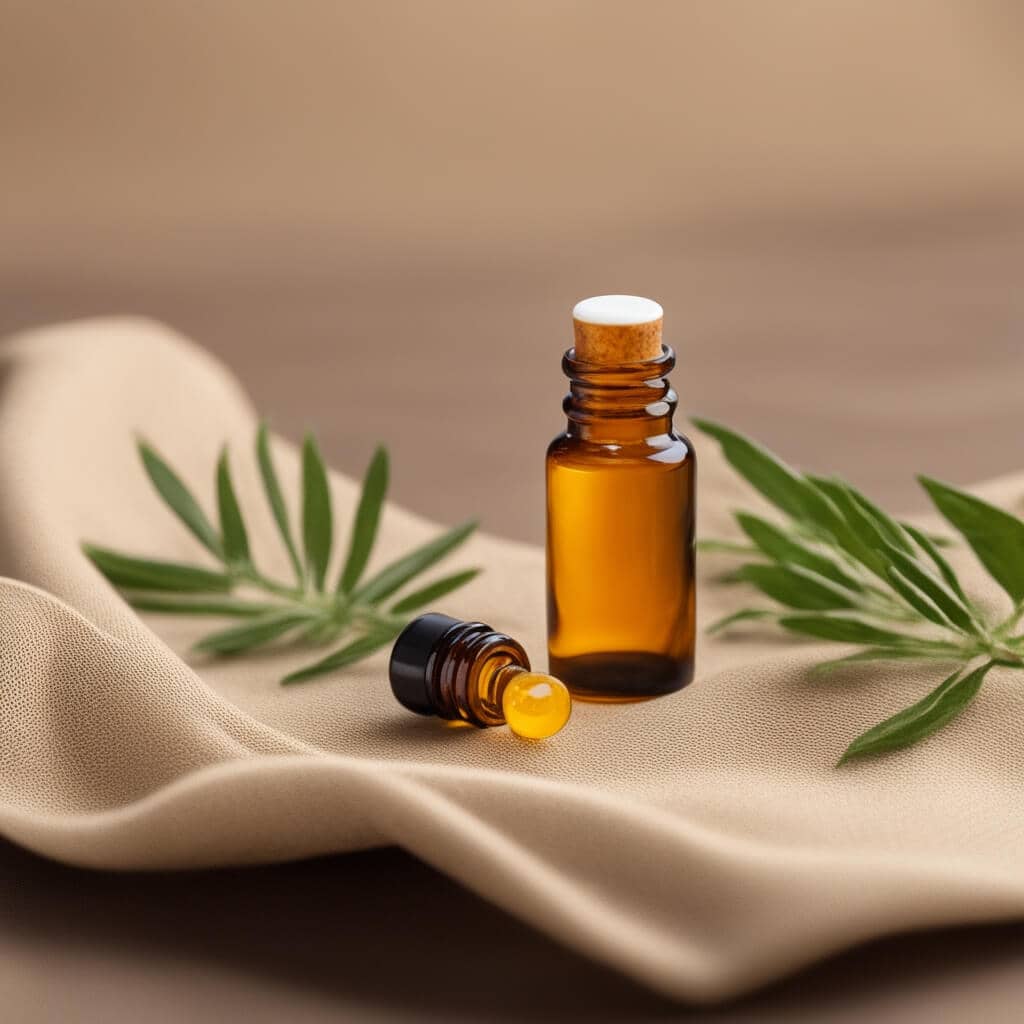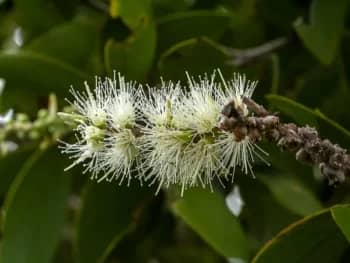Eucalyptus oil and cajuput oil are both essential oils derived from trees of the Myrtaceae plant family. They have some similar therapeutic properties and uses, but there are also some key differences between these two essential oils.
What is Cajuputi Oil?

Cajuput oil comes from the cajuput tree (Melaleuca cajuputi), which is found in Southeast Asia and Australia. The oil is extracted from the leaves and twigs of the tree through steam distillation.
Cajuput has been used for centuries in traditional medicine systems of Southeast Asia. Some of the traditional uses of cajuput oil include treating colds, flu, asthma, headaches, and digestive issues.
The main active constituents of cajuput oil are cineole (up to 65%) and terpineol. The high cineole content gives cajuput similar properties to eucalyptus oil. Cajuput also contains limonene, alpha-pinene, beta-pinene, linalool, and other terpenes and terpenoids.
Cajuput Oil benefits and Uses

Cajuputi oil has the following therapeutic properties and uses:
- Expectorant - Helps loosen mucus and clear respiratory congestion associated with coughs, colds, bronchitis and asthma. Can be inhaled or applied topically.
- Analgesic - Has pain-relieving effects when used topically. May help relieve headaches, muscle aches, and joint pain.
- Antiseptic - Prevents growth of microbes and protects against infection. Can be applied to minor cuts and wounds. Also used to treat acne.
- Anti-inflammatory - Reduces inflammation associated with skin conditions, muscle strain, and joint pain.
- Stimulating - Has an energizing effect and may help relieve fatigue and boost focus.
- Digestive aid - Helps relax intestinal muscles and may relieve cramps, bloating, and gas.
Cajuput oil can be used in aromatherapy, massage oils, inhalants, vapor rubs, and added to baths. Always dilute with a carrier oil before applying to skin. Avoid oral ingestion.
What is Eucalyptus Essential Oil?

Like cajuput, eucalyptus essential oil also comes from trees of the Myrtaceae family. There are over 700 species of eucalyptus, but the most common species used for oil extraction is Eucalyptus globulus.
Eucalyptus leaves are steam distilled to extract the essential oil, which has a distinctive medicinal, camphor-like scent. Eucalyptus oil has been used medicinally since the 19th century.
The main chemical components of eucalyptus oil are eucalyptol (also known as cineole, up to 90%) and alpha-terpineol. Eucalyptus globulus oil has one of the highest cineole contents among eucalyptus species.
Eucalyptus Essential Oil Good For

Here are eucalyptus essential oil good for:
- Decongestant - Very effective for clearing sinus and respiratory congestion. Promotes coughing up of phlegm. Can be inhaled or used in vapor rubs.
- Anti-inflammatory - Reduces swelling and inflammation of respiratory tissues; also useful for muscle/joint aches.
- Antimicrobial - Has antibacterial, antiviral, and antifungal properties that help fight infections.
- Pain relief - Has analgesic effects when applied topically or inhaled. May relieve headaches, muscle pain, and rheumatism.
- Wound care - Promotes healing of minor cuts, burns, bites; also helps prevent infection.
- Stimulating - Inhalation can provide an energizing effect and improve focus/alertness.
- Mosquito repellent - Oil can be applied to skin or diffused to repel mosquitoes.
Eucalyptus essential oil is commonly used in aromatherapy, personal care products, cleaning products, and as an insect repellent. It can be inhaled, applied topically, or added to liquid cleaners and laundry. Always dilute before applying to skin.
Similarities between Cajuput Oil and Eucalyptus Essential Oils
Both cajuputi oil and eucalyptus essential oils share the following similarities:
- High in cineole/eucalyptol content, which gives them expectorant and decongestant properties.
- Analgesic, anti-inflammatory, and antiseptic properties. Can relieve pain and fight infections when applied topically.
- Stimulating effect. May boost energy levels and alertness when inhaled.
- Derived from trees in the Myrtaceae family and extracted via steam distillation.
- Herbaceous, fresh, camphor-like scent.
- Should be diluted with carrier oil for topical use due to high potency.
- Most often used aromatherapeutically via inhalation, diffusion, or vapor rubs. Also used topically.
- Considered safe for most adults when used appropriately. Pregnant women should consult their doctor before use.
The main similarities between these two oils come from their chemical composition and traditional therapeutic uses. Both oils can be used in similar ways.
Differences between Cajuput Oil and Eucalyptus Essential Oils
While cajuputi oil and eucalyptus essential oils have some notable similarities, there are also some key differences between them:
- Eucalyptol content - Eucalyptus globulus oil contains a higher percentage of eucalyptol (up to 90%) compared to cajuput oil (up to 65%).
- Appearance - Cajuput oil tends to be light yellowish green in color, while eucalyptus is clear to pale yellow.
- Origin - Cajuput comes from Melaleuca cajuputi trees native to Southeast Asia, while most eucalyptus oil comes from the Eucalyptus globulus tree native to Australia.
- Scent - Cajuput has a brighter, fruitier scent, while eucalyptus is more harshly medicinal.
- Uses - Cajuput is commonly used for skin care, digestive complaints, and headaches. Eucalyptus is more associated with respiratory issues, infections, and pain relief.
- Blending - Cajuput blends well with spices, citrus, floral, and mint oils. Eucalyptus complements woody, herbaceous, oriental, and pine oils.
- Skin sensitivity - Cajuput is generally better tolerated on skin than eucalyptus, which can cause irritation in some.
- Toxicity - Cajuput is considered non-toxic, while eucalyptus can be toxic if ingested in large quantities.
So in summary, the main differences have to do with the plant origins, chemical composition, aroma profile, topical uses, and blending notes of these two oils. Cajuput is lighter and fruitier in scent compared to the medicinal eucalyptus.
How to Choose Between Cajuputi Oil and Eucalyptus Oil
Cajuput and eucalyptus oils can both be effective for respiratory congestion, pain relief, and fighting infections. So which one should you choose? Here are some factors to help decide:
- Respiratory congestion - For sinusitis, bronchitis, and coughs, eucalyptus may be more effective due to higher eucalyptol content.
- Muscle/joint pain - Cajuput oil may work better for general aches and pains applied topically.
- Skin care - Cajuput is gentler and preferred for acne, oily skin, cuts, wounds. Eucalyptus may cause skin irritation.
- Headaches/fatigue - Cajuput's stimulatory properties make it a good choice for these uses.
- Blending/diffusing - Cajuput has a pleasant, fruity aroma. Eucalyptus has a harsh medicinal scent.
- Allergies - Those with sensitivity to eucalyptus may tolerate cajuput better. Do a skin patch test.
- Cost - Cajuput is generally a little cheaper in price compared to eucalyptus oil.
For respiratory congestion, eucalyptus oil is typically the first choice. But cajuput can make a good substitute if you have a eucalyptus allergy or sensitivity. For other uses, cajuput often comes out on top as the gentler and more versatile oil.
Always dilute essential oils before applying them directly to skin. Using a neutral carrier oil helps prevent irritation. Speak to your doctor before using essential oils if you have any medical conditions or are pregnant. While similar, cajuput and eucalyptus oils have distinct differences that impact how they are best used. Consider your intended uses and personal tolerances when deciding which oil to use.
Southeast Asia in general and Indonesia in particular, is one of the largest producers of cajuput oil in the world. cajuputi oil, which has many benefits, is very popular with people in Indonesia and throughout the world.
If you want to try the best quality cajuputi oil, you are in the right place. We, Global Essential Oil, are suppliers of high quality cajuputi oil. Our products have been exported to several countries and have been recognized by international standards.
Feel free to contact us via Email, WhatsApp and telephone to get free samples of high quality eucalyptus oil and other essential oils.



